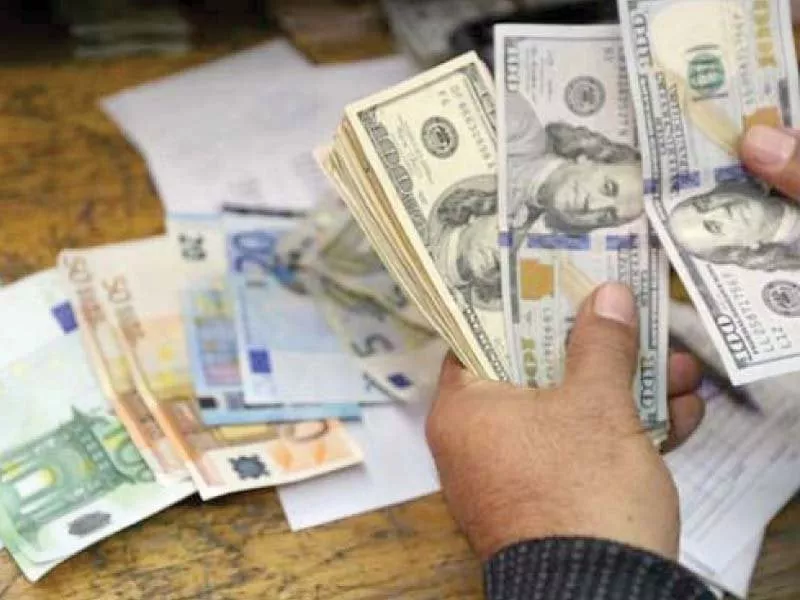Govt borrowings for reforms top $10b, Senate told
Finance ministry says Covid pandemic slashed GDP growth rate by 2%, Rs809b tax revenues
ISLAMABAD:The finance ministry on Friday presented details of losses incurred by the national economy due to the coronavirus pandemic as well as the loans acquired from international financial institutions for the government’s reform agenda in the Senate session.
During the session, chaired by Senate Chairman Sadiq Sanjrani, the government acknowledged that consensus eluded the ninth National Finance Commission (NFC) award therefore, at present, there was no proposal in hand for the announcement of the award.
The house was informed that the government borrowed more than $10 billion from international financial institutions under its reform agenda, including $4.11 billion from the World Bank and $3.66 billion from the Asian Development Bank (ADB).
Other loans included $1.68 billion from the Islamic Development Bank (IDB) and $800 million from the Asian Infrastructure Investment Development Bank. The ministry said that markup on the International Monetary Fund (IMF) loans was 4.05%, while its repayment would begin in 2024 and continue until 2032.
The present government has signed 21 agreements with the World Bank and 22 with the ADB, while 58 agreements had been signed with international financial institutions to reform public institutions, the lawmakers heard.
The session was informed that 19 state utilities would be privatised, while the process for 14 enterprises was currently under way. These included Baloki Power Plant, Haveli Bahadur Shah Power Plant, SME Bank, First Women’s Bank, Service International Hotel, Roosevelt Hotel, State Life Insurance Corporation Pakistan Steel Mills, Heavy Electrical Complex, Jinnah Convention Centre and Oil and Gas companies.
Pandemic fallout
The finance ministry said that the gross domestic product (DGP) growth rate fell by 2% because of the coronavirus pandemic, which emerged in the country in February this year. Because of the disease, tax revenues also fell by Rs809 billion but the deficits of state-owned enterprises came down by 20%.
According to the finance ministry, public sector enterprises incurred losses to the tune of Rs1.014 trillion in the last two years -- Rs563.28 billion in financial year 2017-18 and Rs450.84 in 2018-19, the ministry said, adding that the overall losses of the state-owned enterprises fell by 20% last year.
According to the ministry, the GDP growth rate fell from 2.4% to -0.4% because of the coronavirus pandemic. Because of the pandemic, it added, the Federal Board of Revenue (FBR) lost Rs809 billion in tax revenue collection, budget deficit increased by 1% while exports target was also missed.
Separately, the ministry in its written reply informed the house that there was no proposal for the announcement of the ninth NFC Award. It said that five sessions of the ninth NFC had been held but because of no agreement, the 10th NFC had been constituted.
Responding to a calling attention notice regarding drugs prices, Parliamentary Affairs State Minister Ali Mohammad Khan told the house that the previous governments had given control of drug prices to pharma companies.
He said the governments of the Pakistan Peoples Party (PPP) and Pakistan Muslim League-Nawaz (PML-N) had linked drug prices to the Consumer Price Index (CPI). “Our government has taken the step that pharma companies will have to get permission from the health ministry before raising the prices.”
He said that the pharmaceutical companies have agreed not to raise the drug prices during the coronavirus pandemic. About the recent increase in the prices, he said that those 94 drugs, which became more expensive, accounted for 1.5% of total use.
Opposition rallies
During the session, the treasury and opposition members also gave heated speeches over the Pakistan Democratic Movement (PDM) rally in Gujranwala. Information Minister Shibli Faraz said that opposition could not face the challenge of filling the Gujranwala ground to its capacity.
Referring to the PPP and the PML-N leaderships, Faraz said that when Imran Khan, through his struggle, had wrapped up the limited companies of the two royal families. He added economy of the country deteriorated because of these families’ limited companies.
He was also critical of the PDM head and Jamiat Ulema-e-Islam-Fazl (JUI-F) chief Maulana Fazlur Rehman. “If Maulana’s son wins the election, everything is fine but when Maulana himself loses the election then it is not right,” he added. “It will not work.”
He told the house that the opposition could not shake the resolve of Prime Minister Imran Khan. “We will put the country on its feet,” he said. “Inflation is temporary and the situation will improve in the next few weeks. Good times are coming.”
The Leader of the House in the Senate, Senator Shehzad Wasim said that those sitting in London were beating drum of war against the institutions. The opposition has put everything at stake for its political interests, he added.
Earlier, PML-N Senator Mushahidullah Khan said that the National Assembly and the Senate sessions should not be used to criticise opposition meetings. “On the one hand, the government is challenging [us] to fill the stadium [in Gujranwala] but on the other its legs are shaking,” he said.
“Can you block the march of Nawaz Sharif and his brave daughter? You cannot. You cannot block the march of Maulana Fazlur Rehman. The government can no longer block the march of the people,” Khan told the house. Later the session was adjourned until Monday.


COMMENTS
Comments are moderated and generally will be posted if they are on-topic and not abusive.
For more information, please see our Comments FAQ